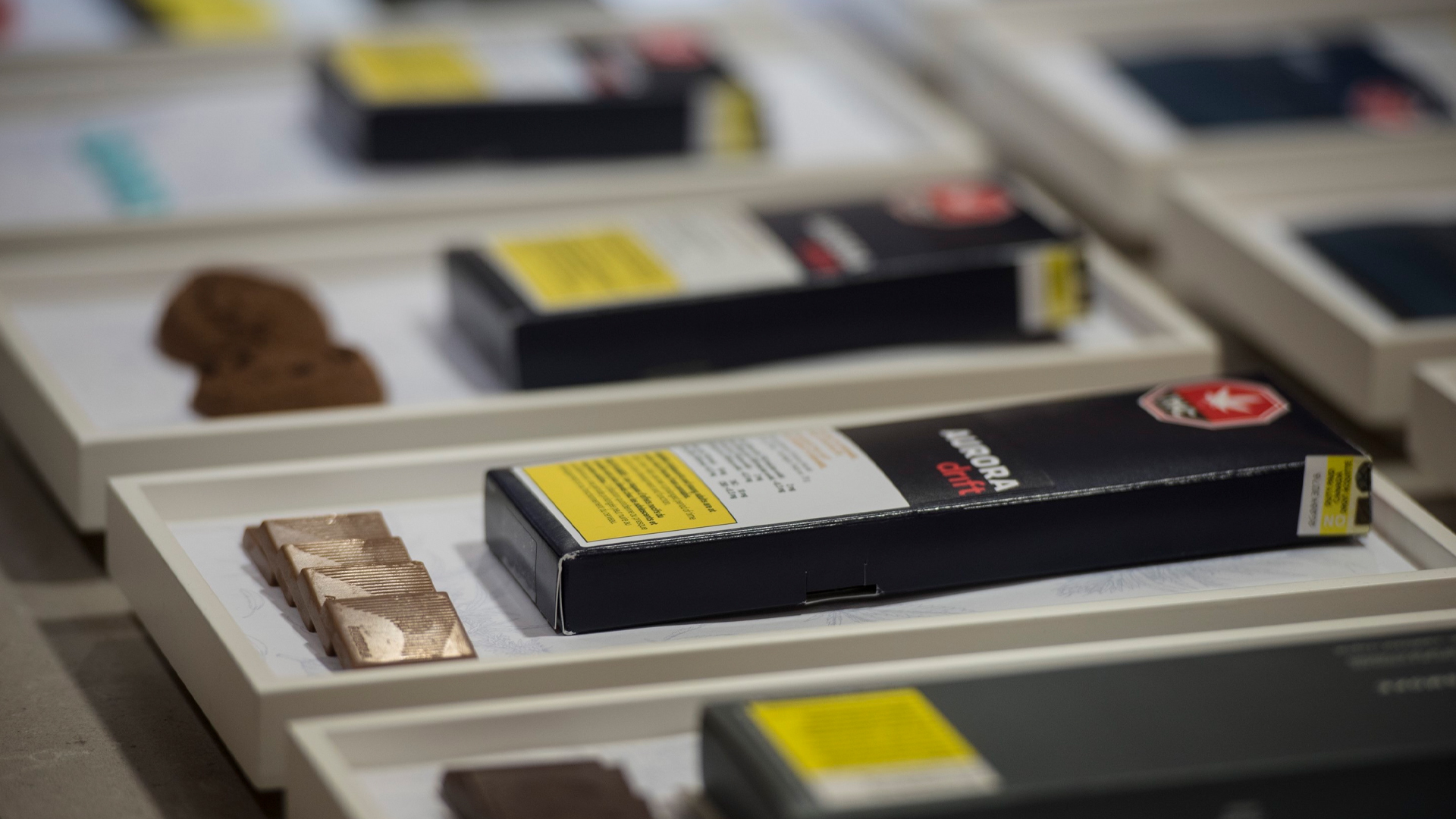
The Ontario Cannabis Store (OCS) is now the most lucrative provincial cannabis agency in Canada, thanks to four consecutive profitable years selling recreational cannabis. Yet throughout that time, it puzzlingly paid no dividends to Ontario’s government.
OCS ended the last fiscal year with $459 million of accumulated profit in the bank. That makes no sense. The province should either spend the money on public services or stop extracting it from the industry’s pockets.
The strangeness of this situation has become increasingly apparent as finance ministers and government agencies across the country have slowly released their 2022-23 financial results. Quebec’s cannabis agency published its annual report on June 5, for example, but Prince Edward Island didn’t post its statements until Nov. 6.
Taxes
Let’s start by talking about taxes. With cannabis, governments collect excise taxes from producers and sales taxes from retailers.
For example, the federal government’s share of excise taxes and estimated sales tax from cannabis sales across the country totaled $455 million during 2022-23. That equates to about $11.50 per capita or eight per cent of every dollar that Canadians spent on recreational cannabis.
But the top tax collector in total dollar terms was Ontario. It hauled in $310 million in excise tax and an estimated $148 million of sales tax that fiscal year, for a total of $458 million. That’s roughly $29.80 per Ontario resident or 22 per cent of consumers’ spending.
Meanwhile, Alberta had the highest cannabis tax on a per-capita basis at $37.40. The province garnered $172 million partly because it sold more cannabis per resident than any other province and partly because its excise tax rate was higher than any other province’s.
Agency profits
Many provinces get additional revenue from their cannabis agencies.
For example, in Quebec, New Brunswick and Prince Edward Island, government-owned agencies sell cannabis through their own retail stores.
In Ontario, by contrast, OCS is mostly a wholesaler. It buys products from producers across the country and resells them to more than 1,700 private sector stores around the province. OCS owns no physical stores itself, but gets 97 per cent of its revenue through its sales to these stores. It also sells some cannabis directly to consumers via its retail web site but that accounts for only three per cent of its revenue.
But even without stores, the OCS was the country’s highest-earning cannabis agency. Its $234-million profit last year easily topped the $95 million made by Quebec’s agency, the $18 million of New Brunswick’s and the $2.9 million of Prince Edward Island’s.
Population sizes explain most of the earnings difference. On a per-resident basis, Ontario’s agency profit was $15.22, higher than Quebec’s $10.83 but lower than Prince Edward Island’s $17.12 or New Brunswick’s $22.32.
Pricing also mattered. OCS retail prices were 75 per cent higher than what it paid producers. By comparison, retail markups were only 37 per cent in Prince Edward Island and 46 per cent in Quebec. That left more money for industry and consumers. New Brunswick’s markups were higher at 108 per cent.
It’s good that OCS is profitable. But profitable firms should reward their owners.
Cannabis agencies in other provinces paid generous dividends to their governments. Quebec and Prince Edward Island got 100 per cent of their agencies’ profit last year, while New Brunswick got 90 per cent.
But Ontario’s government received no dividends from OCS. That must change. There’s little point in the OCS charging high prices to earn high profits if the provincial government isn’t using them.
(If the agency were a commercial corporation, its shareholders would long ago have demanded dividends.)
So, the Ontario government should review its cannabis policy, as other jurisdictions are already doing. The federal government’s legislative review of the Cannabis Act is underway after a delay caused by the pandemic. The Yukon government announced a cannabis policy review in October. Manitoba cancelled its social-responsibility fee in July.
Use them or lose them
Ontario should follow suit. It should either put its cannabis profits to work or stop taking them from struggling cannabis firms.
The first option means treating the Ontario Cannabis Store as a cash cow, as the province does with its liquor agency. In that case, the government should spend the earnings appropriately. It could, for example, fund addiction treatments for cannabis and other drugs. Or it could support social justice programs to help the communities most affected by pre-legalization drug laws.
It could also support research and development for medical cannabis. Sponsoring drug trials or other studies could help convert folklore remedies into proven treatments. That could benefit patients, physicians and producers all at once.
The second option means viewing the OCS as a service to industry. In that case, Ontario should minimize the financial burden it imposes.
Alberta does this already. Its agency sells cannabis wholesale to stores at prices only six per cent higher than what it pays producers. That’s just enough to cover operating costs.
By contrast, the OCS recently lowered the average wholesale markup it charges retailers from 31 per cent to 25 per cent. But its financial statements imply OCS could slash the markups down to 11 per cent and still break even.
The OCS should especially eliminate markups on farmgate sales, whereby cannabis is sold directly from producers’ greenhouses to visiting consumers. It doesn’t touch those products and shouldn’t profit from them.
So, Ontario’s governing Progressive Conservatives face a choice. They can be progressive by using OCS profits for public benefit. Or be conservative by minimizing the cost to industry.
Either way, they should stop leaving the OCS swimming in unused cash like a veritable Scrooge McDuck.









